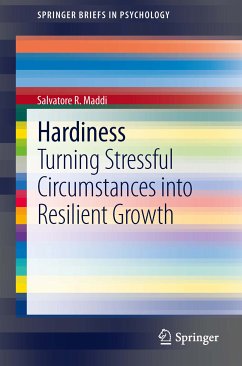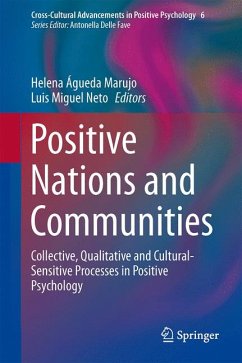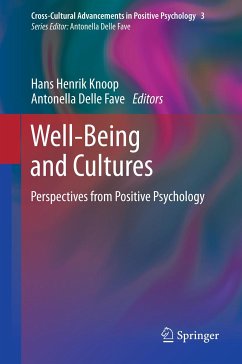
Hardiness (eBook, PDF)
Turning Stressful Circumstances into Resilient Growth
Versandkostenfrei!
Sofort per Download lieferbar
60,95 €
inkl. MwSt.
Weitere Ausgaben:

PAYBACK Punkte
30 °P sammeln!
These are turbulent times in which it becomes increasingly important to survive and thrive despite stressful circumstances. Hardiness is the pattern of attitudes and skills that provides the courage and strategies that helps people be resilient by turning potential disasters into growth opportunities and fulfillment, thereby enhancing their performance, sense of fulfillment, and health. Hardiness as the pathway to resilience under stress has become of considerable interest, it is beginning to have an influence on the emerging emphasis of positive psychology by expanding this approach beyond me...
These are turbulent times in which it becomes increasingly important to survive and thrive despite stressful circumstances. Hardiness is the pattern of attitudes and skills that provides the courage and strategies that helps people be resilient by turning potential disasters into growth opportunities and fulfillment, thereby enhancing their performance, sense of fulfillment, and health. Hardiness as the pathway to resilience under stress has become of considerable interest, it is beginning to have an influence on the emerging emphasis of positive psychology by expanding this approach beyond mere happiness, to the courage and strategies needed to make the most of difficult times.
The book starts with the special value of hardiness in being resilient by not only surviving, but also thriving under stress, and thereby achieving fulfillment in living. The book then elaborates on the pattern of attitudes and skills of hardiness that form the pathway to this needed resiliency. It discusses the 30 years of validational research and practice that is available concerning hardiness. The book offers various applications of hardiness assessment and training that can contribute to a better life. These include, among others, how hardiness can be trained in school and emphasized in psychotherapy, how hardiness facilitates the intimacy and longevity of relationships, and what organizations need in order to perform successfully in these turbulent times.
The book is of interest to academics, industrial and organizational psychologists, clinical psychologists, mental health professionals, and professionals in public health, social work, sociology and human resources.
The book starts with the special value of hardiness in being resilient by not only surviving, but also thriving under stress, and thereby achieving fulfillment in living. The book then elaborates on the pattern of attitudes and skills of hardiness that form the pathway to this needed resiliency. It discusses the 30 years of validational research and practice that is available concerning hardiness. The book offers various applications of hardiness assessment and training that can contribute to a better life. These include, among others, how hardiness can be trained in school and emphasized in psychotherapy, how hardiness facilitates the intimacy and longevity of relationships, and what organizations need in order to perform successfully in these turbulent times.
The book is of interest to academics, industrial and organizational psychologists, clinical psychologists, mental health professionals, and professionals in public health, social work, sociology and human resources.
Dieser Download kann aus rechtlichen Gründen nur mit Rechnungsadresse in A, B, BG, CY, CZ, D, DK, EW, E, FIN, F, GR, HR, H, IRL, I, LT, L, LR, M, NL, PL, P, R, S, SLO, SK ausgeliefert werden.













